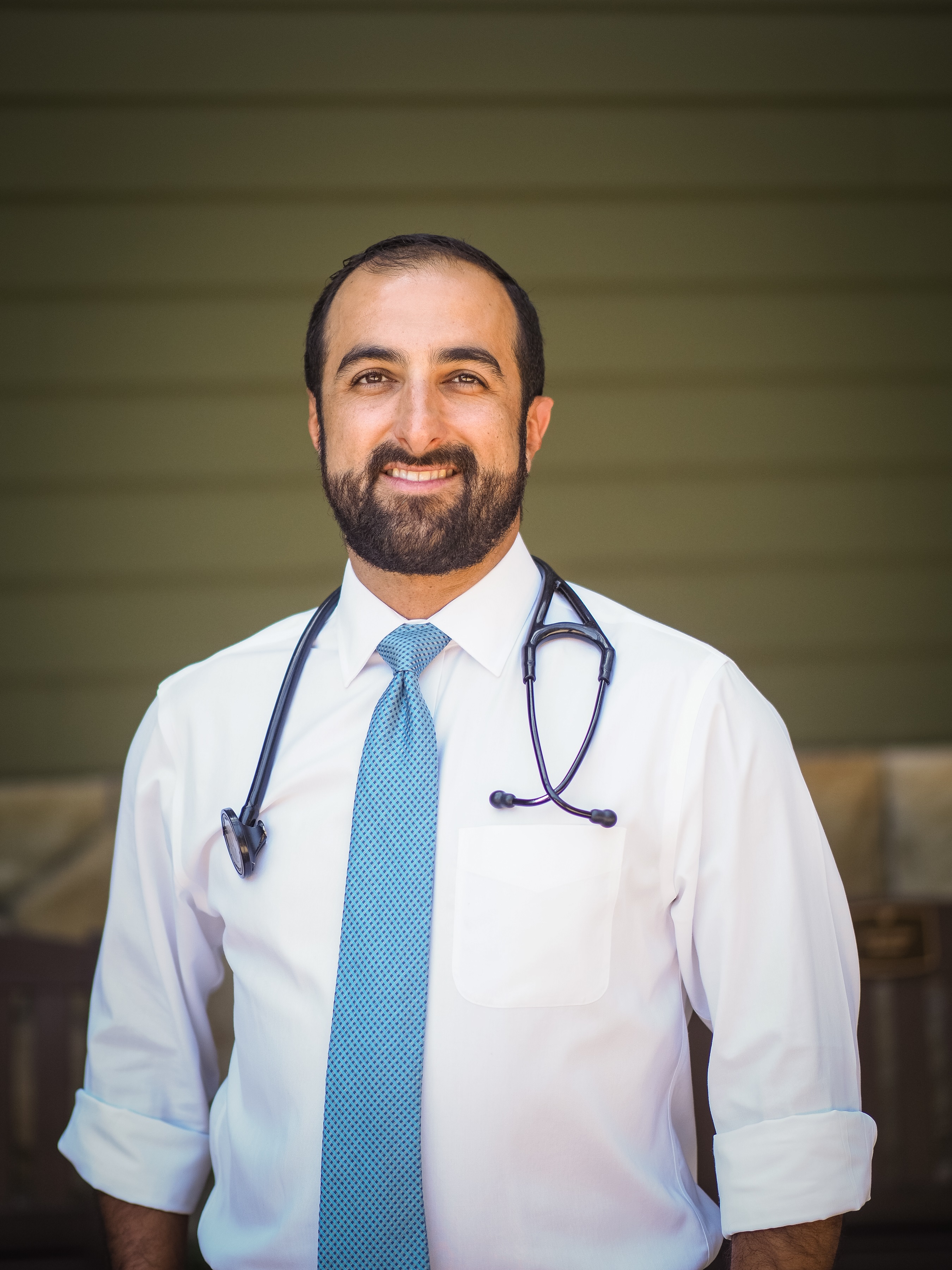 Dermatologists regularly treat several forms of skin cancer, like basal cell, squamous cell and early stage melanomas. Because melanomas may require treatment beyond what dermatologists offer, oncologists are part of the treatment team in higher-risk and advanced situations. Melanoma causes the majority of skin cancer deaths, and the risk of developing melanoma increases with age. If the melanoma is advanced or metastatic, meaning it has spread to other parts of the body, immediate attention is needed. Medical oncologist Julian Davis, MD, MA sees the majority of skin cancer patients at Ridley-Tree Cancer Center. His fellowship training at the University of California, Davis Comprehensive Cancer Center included a subspecialty focus in advanced skin cancers including melanoma, which gave him added training and experience. “The treatment landscape of advanced skin cancers is evolving very rapidly in a good way, with landmark advancements especially in melanoma in the last five to ten years,” he remarks.
Dermatologists regularly treat several forms of skin cancer, like basal cell, squamous cell and early stage melanomas. Because melanomas may require treatment beyond what dermatologists offer, oncologists are part of the treatment team in higher-risk and advanced situations. Melanoma causes the majority of skin cancer deaths, and the risk of developing melanoma increases with age. If the melanoma is advanced or metastatic, meaning it has spread to other parts of the body, immediate attention is needed. Medical oncologist Julian Davis, MD, MA sees the majority of skin cancer patients at Ridley-Tree Cancer Center. His fellowship training at the University of California, Davis Comprehensive Cancer Center included a subspecialty focus in advanced skin cancers including melanoma, which gave him added training and experience. “The treatment landscape of advanced skin cancers is evolving very rapidly in a good way, with landmark advancements especially in melanoma in the last five to ten years,” he remarks.
More advanced melanomas have historically been more difficult to treat but newer types of immunotherapy and molecular targeted therapies are radically altering how the disease is managed. Clinical research is the strong foundation to advancing these new medical options. Along with medical oncologist Mukul Gupta, MD, Ridley-Tree’s Clinical Research Department oversees several melanoma clinical trials, which can sometimes demonstrate lifesaving results. “Research is hard and time-consuming. You have to have buy-in and enthusiasm from your research team, from your fellow medical oncologists and from the community, but you can hit home runs that would not have been possible five years ago,” explains Dr. Davis.
Dr. Davis collaborates locally with a wide variety of skin cancer specialists for his melanoma patients beginning with skilled local dermatologists. Because treatment for higher-risk local melanoma often begins with surgery, he frequently coordinates with Ridley-Tree surgical oncologist W. Charles Conway, MD, FACS, surgeon Kim Grafton, MD, FACS, and facial plastic and reconstructive surgeon Andrew Beckler, MD. Local pathologists, nuclear medicine physicians, radiation oncologists and technicians, and genetic counselors also play key roles in providing a detailed picture of the cancer and then carrying out the treatment plan in a multidisciplinary way.
Advances in metastatic melanoma treatment such as immunotherapies are now used to treat localized node-positive melanomas, and these therapies are currently being studied in earlier stages of the disease. “Offering this kind of treatment after surgery can reduce the chance of recurrence and improve the chance of a cure, in the same way we have treatment after surgery for lung cancer, colon cancer or breast cancer, in one sequence,” notes Dr. Davis. While the rates of melanoma have been rising over the past few decades according to the American Cancer Society, the deep knowledge of our clinical team to evaluate complex cases carefully guides our approach for patients facing this diagnosis. We understand the emotional and physical challenges of melanoma treatment and offer a host of resources, inside and outside the Cancer Center, to add to every patient’s care plan. “It’s bigger than us because it involves care in the entire community,” comments Dr. Davis.